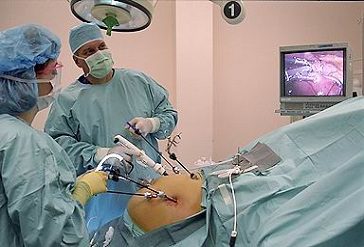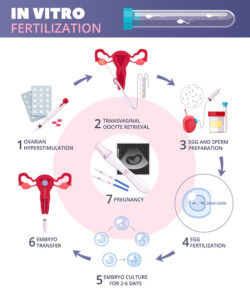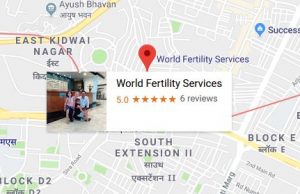IVF Legal Guidelines in India makes you aware about Fertility Treatment in India
Though the world of medicine shows its signature panacea to every sort of medical condition, this has also been life-line contradicting every myth relied on the miracle. Yes, it is none other than having a baby after the fertility treatment sounds profitable for the intended parents. While infertility is not life-threatening, but it causes to intense mental agony and trauma that can only be best described by infertile couples themselves. At us, let you know more of IVF procedures and its IVF Guidelines in India.
As there are no detailed figures as to the extent of infertility prevalent in India, a global study carried out by WHO places the incidence of infertility between 10 and 15%. Out of a population of 1000 million Indians, an estimated 25% may be conventionally estimated to be attempting parenthood at any given time; by extrapolating the WHO estimate, about 13-19 million couples are likely to be infertile in the country at any given time.
Most types of infertility such as reproductive tract infections (RTI) and genital tuberculosis are preventable by treatment. About 8% of infertile couples, however, need a serious medical intervention involving the use of advanced ART procedures such as IVF or ICSI.
IVF Legal Guidelines in India Infertility also has far-reaching communal inferences. So, it has become imperative to ensure their safety, with the rapidly increasing use of ART in our country. Scientific societies around the world, such as the ASRM, ESHRE, and IFFS, have put together IVF Guidelines in India for the safe and ethical practice of ART. The European Union and the Governments of several countries such as Australia, the UK, and the USA have taken steps to recognize and supervise the performance of infertility clinics.

Key features of WORLD FERTILITY SERVICES
![]()
- Highly top-notch technologies and advanced methods
- Top consultation and counseling session
- Highly experienced fertility and IVF doctor in Delhi
- Affordable IVF treatment with various packages
- Highest success rates of IVF in Delhi
- Contact us: possible@worldfertilityservices.com
- Call us: +91-9560712022
Guidelines for IVF Treatment as per Existing Law
1. Clinics to be registered
Clinics involved in any one of the following activities should be controlled, listed, and managed by the State Accreditation Authority as given below:
- Any treatment involving the use of gametes that have been donated or processed in vitro, except for AIH, and for IUI by level 1A clinics that will not deal with the gametes themselves.
- Any infertility treatment that involves the use and creation of embryos outside the body.
- The processing or storage of embryos.
- Research on human embryos.

About:
 WORLD FERTILITY SERVICES is present to help every couple. You can have the best infertility treatment with top guidance. Moreover, the best IVF centre in Delhi has advanced technologies and techniques for various treatments. Many patients choose us for their successful procedures and outcome. With it, you can have detailed IVF cost in Delhi. It’s available with packages and other assistance that help.
WORLD FERTILITY SERVICES is present to help every couple. You can have the best infertility treatment with top guidance. Moreover, the best IVF centre in Delhi has advanced technologies and techniques for various treatments. Many patients choose us for their successful procedures and outcome. With it, you can have detailed IVF cost in Delhi. It’s available with packages and other assistance that help.
Furthermore, your treatment will perform by the top experienced fertility experts. They use their top education and information in performing successful treatments. With it, you will get many benefits and facilities for the best process.
2. Code of Practice
This manages all aspects of the treatment provided and the research done at registered clinics. Those areas which most affect the doctors and patients, and are a part of this code are summarized below:
- Staff
- Facilities
- Confidentiality
- Information to patient
- Consent
- Counseling
- Use of embryos
- Research
- Storage of gametes and embryos
IVF Success rates:
IVF success rate in Delhi is much higher which helps achieve successful outcomes. You can have the best outcome by managing the conditions. Still, your success rate of IVF in Delhi depends on various factors.
Your IVF success rates will be as per your age. Such as:
for women under age 30
for women age 35 - 37
for women ages 38 - 40
for women over age 41
The couple’s age, infertility conditions, centre you choose health status, and other aspects. These are highly responsible for affecting your IVF treatment. Your IVF success rates in Delhi depend on various factors, such as:
- Moreover, you can have advanced procedures and approaches for increasing the conception chances.
- Your best fertility centre can help with the best method and approaches.
- These depend on your infertility and health conditions. Your fertility expert will suggest they increase the treatment outcome.
3. Responsibilities of the Clinic
- To make available adequate information to the patients.
- To give details to the patient for the basis of selecting an exacting treatment and point to the choices the patient has, with advantages and disadvantages of each choice.
- To assist the patient in exercising a choice that may be best for him/her taking into account the individual’s situation.
- To keep up records in an apt Performa to enable collation by a national body.
- When commercial DNA fingerprinting becomes accessible, to continue its record if the ART clinic wants and the couple concurs, DNA fingerprints of the donor, the child, the couple, and the surrogate mother should be acted.
- To keep all information about donors, recipients, and couples confidential. The information about the donor should be released by the ART clinic after suitable recognition, only to the offspring and only if asked by him/her after he/she arrives at the age of 18 years, or as and when needed for legal purposes, and never to the parents.
- To keep up suitable, comprehensive records of all donor oocytes, sperm, or embryos used, these are the manner of their use. These records must be kept for at least ten years after which the records must be moved to a central depository to be continued by the ICMR. If the ART clinic is wound up during this period, the records must be transferred to the central repository in the ICMR.
- To have the list of all its charges rightfully shown in the clinic and announced to the patient at the commencement of the treatment. There must be no extra charges beyond what was close to the patient at the beginning of the treatment.
- To make sure that no technique is used on a patient for which the confirmed expertise does not stand with the staff of the clinic.
- To be totally translucent in all its operations. The ART clinics must, therefore, give permission to the patient to know what the success rates of the clinic are in regard to the measures planned to be used on the patient.
Why choose us: IVF Legal Guidelines in India
You can choose the best IVF centre in Delhi for a successful outcome. We understand that couples face problems while deciding upon the treatment and place. But do not worry anymore because we are available with top-notch procedures and methods. Your infertility condition can have the best treatment accordingly. What else you will get through us?
- World-class facilities and technologies for treatments
- VIP services and proper maintenance
- 24×7 guidance and assistance by top counselors
- Super active medical team with polite behavior
- All fertility treatments and procedures in one place
- Highest IVF and other treatments success rates
- Well-build infrastructure for top comfort
- Contact us: possible@worldfertilityservices.com
- Call us: +91-9560712022
Directions and Guidelines for IVF Treatment
Indulge with Our Best-in-class Fertility Treatments to cure Your Infertile Issues
Click Me! and Get in Touch with Dr.
What is the new IVF law in India? Who is eligible for IVF in India? What is the latest age you can do IVF? Can I go for IVF without my husband? Read Also:-
Frequently Asked Questions about IVF Legal Guidelines in India
The IVF Legal Guidelines in India: new law bans commercial surrogacy and only allows altruistic surrogacy, which means there must be no exchange of money. The surrogate must be genetically related to the intending couple and must be a married woman between the age of 25 and 35, with a child of her own.
But IVF Legal Guidelines in India according to the latest ART Bill 2020, the upper age limit for conception using assisted conception/IVF in India is 50 years for females and 55 years for male
There isn’t a standard maximum age for IVF. It can and has been performed on women in their late 40s and 50s. With that said, success rates decrease with patient age and the risk of pregnancy complications increases. As a result, the general upper age limit for IVF is somewhere between the early to mid-40s.
IVF Legal Guidelines in India: Section 22(1)(a) enjoins infertility clinics from performing any treatment or procedure without the written informed consent of all the parties seeking assisted reproductive technology, which includes the ‘commissioning couple’ or the woman and her donor.


 WhatsApp us
WhatsApp us